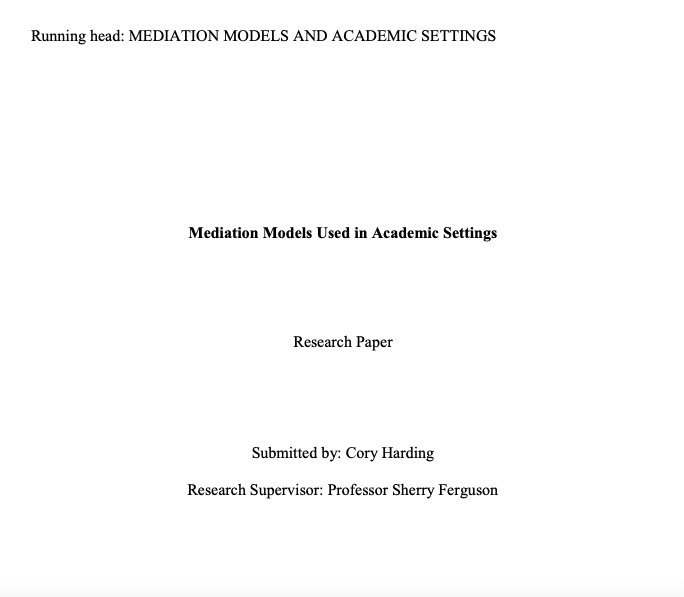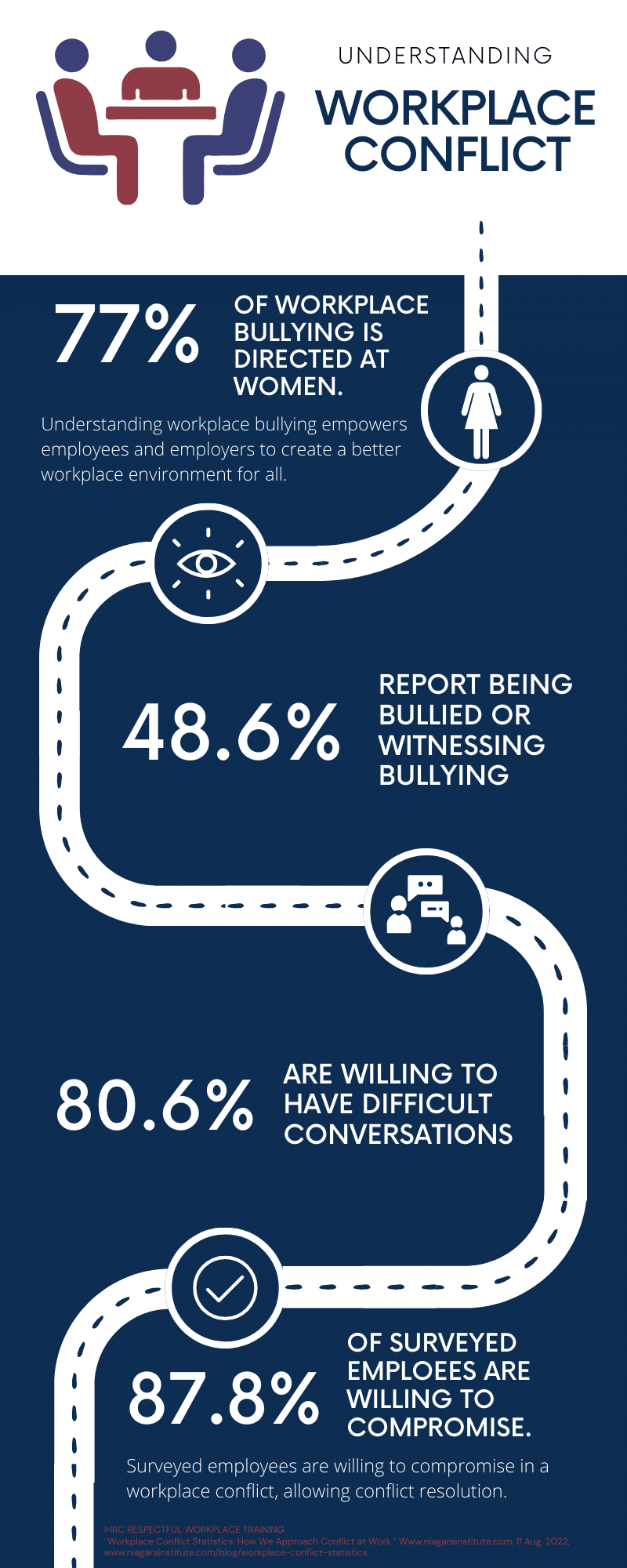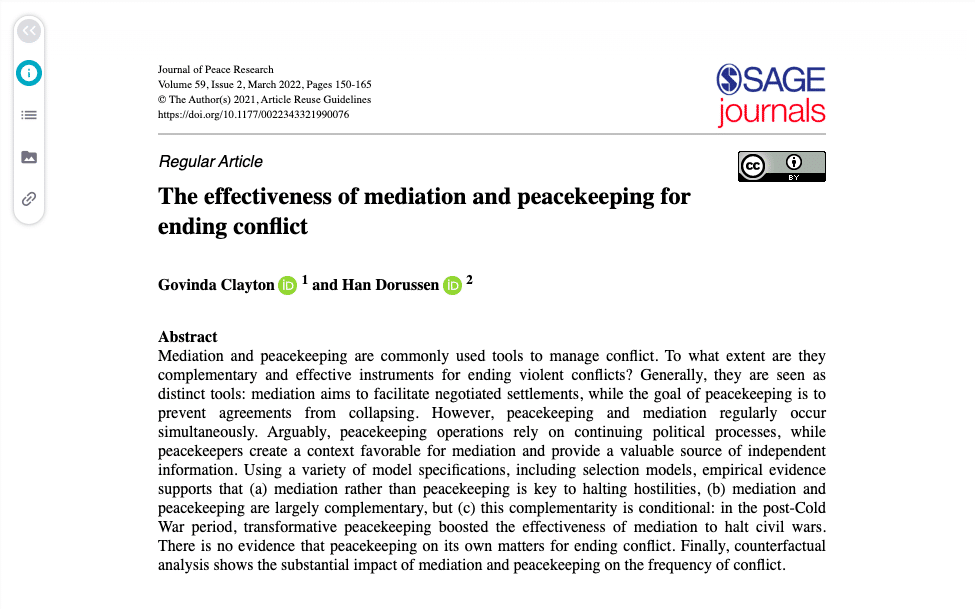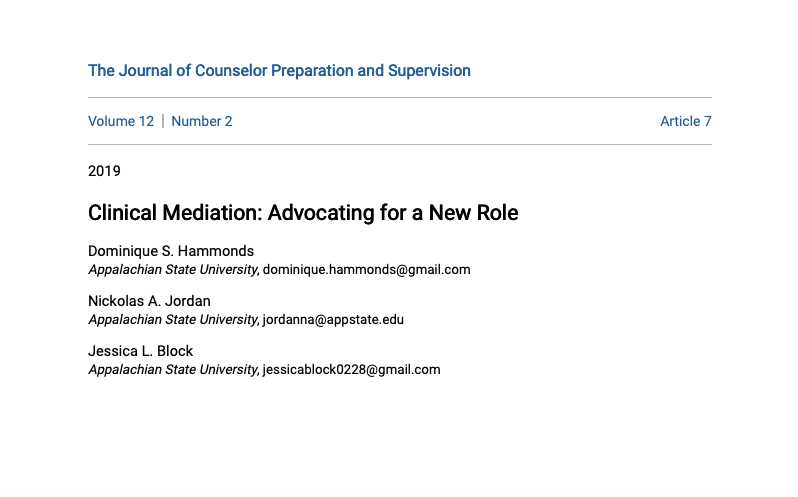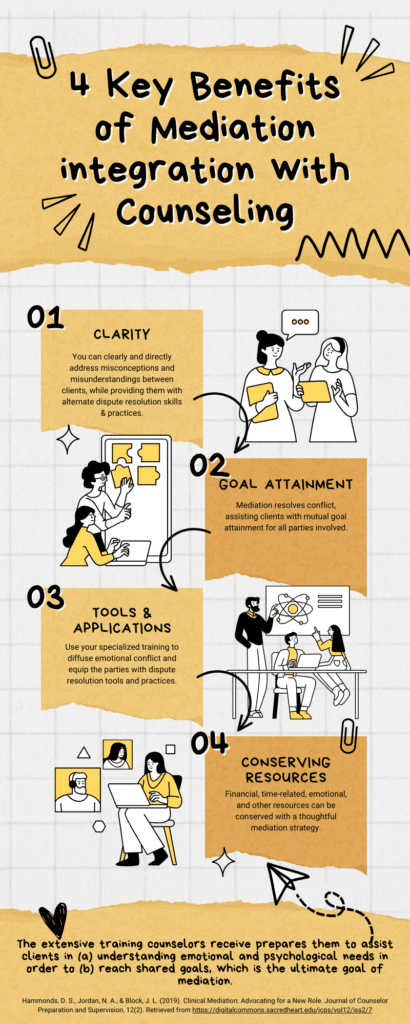A paper published by Cory Harding at the University of Ottawa examined various academic models of conflict resolution and mediation. Harding found that a facilitative model–one where a mediator facilitates negotiated conversation and issues but does not offer much in the way of evaluation of issues or the merits of a party’s position–was the most common approach to mediation in the academic context. Factors such as flexibility, empowerment, and relationships between various stakeholders contributed to mediators’ choice to adapt and implement a facilitative model of mediation in the academic setting.
Mediation Models in Education: Replacing Traditional Legal Systems of Redress
Increasingly, schools, colleges, universities, and other organizations are adopting internal policies and practices related to mediation and alternative dispute resolution (ADR) as precursors and alternatives to traditional legal redress. While institutions cannot prevent suits in the court system, offering internal alternatives for redress may reduce the number and frequency of traditional lawsuits filed. Providing dispute resolution policies, procedures, and structures within the educational system not only potentially reduces litigation; it also provides students, teachers and faculty, administrators, and staff with a forum to address grievances and resolve conflict in a much less costly, protracted legal process.
Harding identifies what many educators, administrators, and academic or educational staff already know: the educational context exhibits a unique set of challenges due to various competing interests and the multi-faceted power dynamics between the school’s board or trustees, administration, faculty, staff, students, and other external constituents. External constituents range from parents and extended family members to community partners and donors. And unlike private businesses or other public and private organizations, educational institutions often feature distinctive hierarchies and departments or divisions that may exhibit competing and divergent goals, resource scarcity, and wholly different purposes based in disciplinary orientations and educational goals.
Conflict can emerge from multi-lateral power structures in education, because each sub-group within the educational system exercises a degree of status and authority due to its unique role and position within the institution. Faculty, administrators, and board members all exercise differing levels of authority and autonomy within the system, for example, which sometimes gives rise to competing interests and conflict. Harding notes that the limits to autonomy and authority in the educational context may also give rise to conflict, due to frustration, limitation, and competition.
Mediation Models in Education: Style and Form
The author of Mediation Models points out that roughly 25 styles of mediation exist, but three styles predominate in the literature. Facilitative, evaluative, and transformative mediation styles are by far the most common in both research and practice, including in the educational context.
Harding identifies many well-known styles of mediation cited in the literature before grouping them into three broad categories: problem-solving, facilitative, and relational styles of mediation. The individual styles of mediation include each of the following:
- Orchestrator or dealmaker style
- Bargaining and therapy approach
- Shuttle diplomacy
- Interventionist style
- Combination of facilitative and evaluative approaches
- Bargaining and integrative styles
- Counselor theory
- Negotiator approach
- Democratic style
- Formulation, manipulation, and reflective styles
- Directive and non-directive styles
- Neutral v. pressing styles
- Insight technique
- Transformative style
Problem-Solving Models. In the first of three categories of mediation, Harding includes the orchestrator and dealmaker; bargaining or therapy; dealmaking and shuttle diplomacy; and interventionist styles of mediation. Common characteristics of these styles include goal-oriented techniques designed to resolve issues in order to reach settlement. An orchestrator may take a more passive, non-directive style that provides a structure and context for the parties to reach their own agreement, whereas a dealmaker may shape and guide the conversation, applying pressure and goading the parties as they work toward settlement. (Importantly, these approaches assume some degree of equality between the parties in order to achieve mutually-beneficial outcomes).
Other problem-solving models may emphasize different aspects of conflict and conflict resolution, such as the emotional impact of the conflict (family therapy style mediation) or the significance and importance of engagement and compromise between the parties (shuttle diplomacy mediation). Finally, in an interventionist model, a highly-engaged and directive mediator guides the parties through structured interactions based on the mediator’s chosen topics and content areas.
Facilitative Models. Unlike problem-solving models, facilitative models emphasize relationships, communication, and the involvement of the parties in the mediation process. A facilitative mediator may look for mutual gains, understand party needs through active listening techniques, or attempt to remove the influence of the mediator as much as possible through passive conveyance of offers and other neutral actions designed to minimize any influence or interference in party negotiations.
Relational Models. Finally, relational models of mediation build on problem-solving and facilitative approaches that incorporate some level of communication analysis and relationship-building. Transformative mediation, for example, utilizes problem-solving techniques, but emphasizes holistic resolution and the incorporation of any and all relevant aspects of party perspective and experience as part of a negotiated settlement. The insight model draws on philosophical approaches to learning and the creation of meaning, similar to the sociological, symbolic interactionist approach to symbols and meaning construction. Transformative in nature, the insight model seeks to transform party perceptions of the other, shifting from a competitive, zero-sum approach to mutual understanding and cooperation due to insight gleaned from the mediation process itself.
Mediation Models in Education: Results
Harding designed a research study with multiple mediation practitioners and participants in mediation, followed by interviews and data collection. The overwhelming majority of participants described a facilitative style of mediation as the model that best suited the educational context, due to the level of sophistication of the parties, ability of participants to work with their counterparts, and relative depth of knowledge exhibited by the participants in the areas of dispute. A facilitative mediator in this context aims to enhance communication, clarify details, and assist the parties in reaching decisions and agreements.
While some participants viewed conflict the same within and outside of the educational context, others identified several aspects of the educational paradigm that make it unique and different from many other institutions, businesses, and organizations. Due to diverse interests and significant autonomy, many participants in educational or academic mediation may value empowerment and sense of responsibility for outcomes more highly as guiding principles of the mediation and expected outcomes. These factors may also enhance the long-term results of mediation, because participants are empowered to make decisions they are responsible for, unlike the outcomes of evaluative mediation where parties are guided more by the mediator’s perspective and input and may question the outcomes more as a result.
Ultimately, the relative autonomy and dynamic power structures of educational institutions align best with facilitative approaches that lean on the expertise, perspectives, and autonomy of participants. Empowerment and the value of reciprocal relationships stand out as implicit values within academic and educational mediation. The facilitative mediator who recognizes and supports these values in mediation will likely experience greater buy-in and participation, and agreements are more likely to persist once the mediator is no longer directly involved.

















